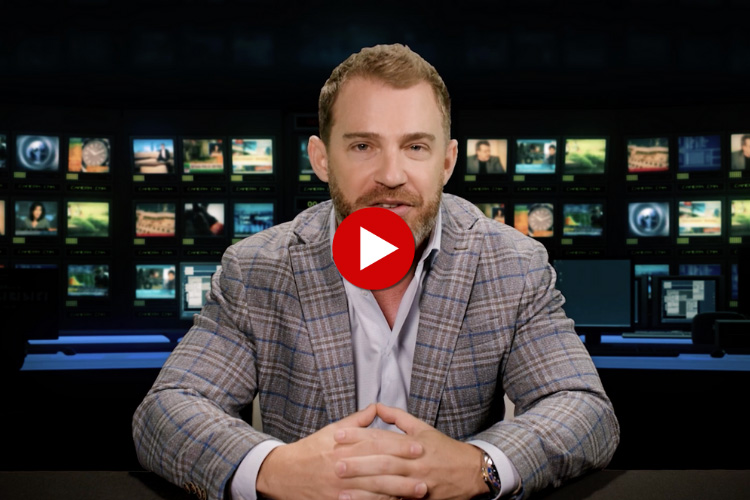I love options.
When it comes to trading stocks, I need to look at whether it makes more sense to buy a stock that fits the criteria of my Surge Stock Indicator (SSI) and clears all of my vetting – or if it makes more sense to buy a call option on that same stock.
There’s also the option of doing both. Buy the stock and buy a call option on that same stock.
To make sure that you are up to speed on my SSI system, please make sure that you’ve read my free report: The Magic of the SSI.
And to make sure that you are good to go when looking at buying an option on one of the stocks on my watch list, I’ve also written another free report for you: How to 10X Your Stock Surge Gains.
To check on my current Watch List of surge stocks, click here right now.
Now, before I get going on my discussion on options today, I want to let you in on a special invitation to join my cohort here at Traders Agency.
This afternoon at 12:00 p.m. EDT, elite trader Josh Martinez is hosting a special live session on his latest initiative: Josh’s Top 5. To RSVP to this special event, click here now.
Josh’s Top 5 is on fire right now…
Josh’s Top 5 has a proven record of working to identify the top sectors and the top stocks in those sectors.
Out of the last five closed trades as of last week of the top stocks that have been in the top sectors, the Top 5 stocks averaged a gain of 6.3% with a short average holding period of 10.8 days.
And there’s more proof… Inside Josh’s Top 5, we also provide option trade alternatives to just buying the top stocks of the top sectors.
And for those closed trades, the options averaged a gain of 42.3%, again in an average holding period of 10.8 days.
As I’m discussing options today, this is very impressive.
So, to get the rundown on the top sectors and the top stocks, please attend the live session today at 12:00 p.m. EDT. To RSVP, click here.
Now, back to my options discussion for more options to profit.
Option Risks & Rewards
First and foremost, options create limited-risk trades.
With options, you can risk much less money for the same exposure.
If a stock is $50 a share and you want to buy 100 shares, the cost of that investment is $5,000.
That’s also your risk.
It is unlikely, but the stock could go to zero and you would lose all $5,000.
But most people wouldn’t let that happen.
They use a stop loss, either a physical one or a mental one, where they will get out of the trade.
Using the $50 stock example, maybe your maximum risk is 20%. You plan to sell if the stock goes below $40.
So, your risk would be $1,000 ($10/share times 100 shares).
Usually, unless it is an extremely volatile stock that just made a huge move, you can get the same investment exposure for less money (and less risk).
A $50 strike call option that expires a few months from now will likely cost around $4. Each option represents 100 shares, so the total investment would be around $400.
Even if the stock goes to zero, you cannot lose any more than the $400 you paid for the call option. In this way, buying the option would carry less risk than buying 100 shares of the stock.
So, if you think a big move is coming from an earnings report, FDA decision, or other major news event, options are a way to limit your risk while giving you the same amount of exposure and profit potential.
Options can be especially beneficial to small account traders.
For those just starting out without a lot of money to invest, it can be difficult to generate big returns owning stocks – at least in terms of total dollars.
Let’s say you have a $2,000 trading account invested equally among four stocks.
Even a 20% gain in one of your holdings (which was once considered a wildly successful year in the market) is only a $100 profit… not exactly enough to start planning your retirement.
Options make gains of 100% or more far more plausible – something you will need in order to significantly build up your account balance.
As an example, I issued a recommendation to members earlier this year to buy call options on the iShares Russell 2000 ETF (IWM), an ETF that tracks the Russell 2000 index.
IWM rose just 7%, but our options gained over 200%.
When used correctly, options are a way to leverage your dollars to produce a higher percentage return.
Additionally, because of the lower price of the options, you are able to diversify your account further.
The same $2,000 account could spread those funds across 10 or more option trades to diversify one’s risk.
Many of the options I buy are a dollar or less ($100 per contract), so you would never need to go “all in” on one trade and pray it works out.
This would be more difficult to achieve with stock, which often trades for several hundred dollars per share.
Another Option for You
As I discussed yesterday in my Traders Daily Direction, I am ramping up my insider stock buying research that is part of my Surge Stock Indicator (SSI).
Yesterday’s live coaching event was all about insider buying and how it works to find stocks that are set to rally higher and stronger.
I have developed a new product that we’ve recently launched here at Traders Agency called Insider Edge.
It’s all about one of my common-sense tools that finds stocks with big surges in the works that are tipped off by company insiders buying their own shares.
To get the full rundown on how to profit by buying stocks that insiders are buying right now, you can learn more about Insider Edge – Click here to watch



